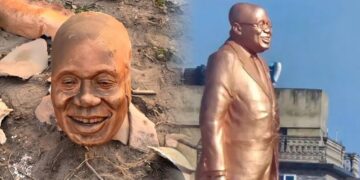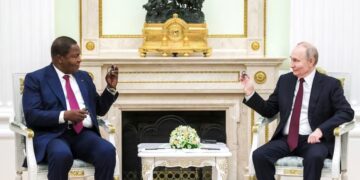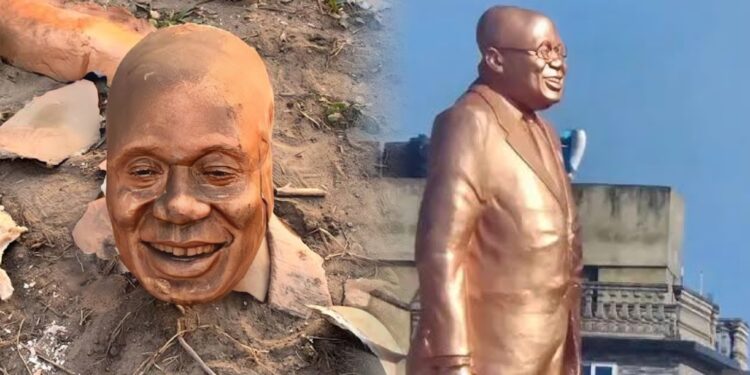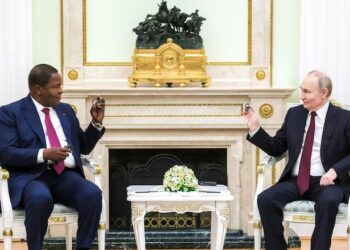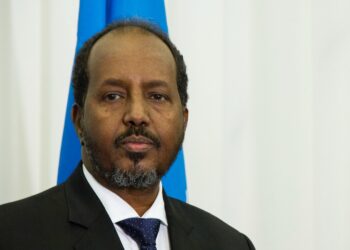By Emmanuel Nduka
A statue of Ghana’s former President Nana Akufo-Addo, which has sparked fierce debate since its unveiling last November, has been destroyed.
The controversial monument, located in the Western Region of the country, now lies in ruins, its head severed and pedestal damaged.
The destruction has ignited even more public outcry and reflection on its intended purpose in the first instance.
Originally unveiled to honor Akufo-Addo’s development efforts during his presidency, the statue quickly became a lightning rod for criticism. Ghanaians viewed it as an unnecessary display of self-promotion in a nation grappling with severe economic challenges.
The country’s economic struggles, including the need for an International Monetary Fund (IMF) bailout and rising cost-of-living issues, have made the statue seem an insensitive expense to some citizens.
The police have yet to offer any details on the identity of those responsible for the vandalism or the motives behind it as at the time of writing this report. However, the statue had already been partially damaged in December, with one leg broken, and a growing number of local residents had called for its removal.
Many Ghanaians argued that the statue added little value to the community and was a poor use of public resources.
While some locals expressed satisfaction at the destruction, calling it “long overdue,” others voiced concern over the lack of respect shown in the act. “There should have been a more respectful way to deal with it, especially considering the president’s contributions,” said one resident. Yet, the controversy around the statue’s existence had become a symbol of the growing discontent with Akufo-Addo’s administration, particularly after his party suffered a heavy defeat in the December elections to opposition leader John Mahama.
Critics of the statue had previously questioned the use of taxpayer money to fund a monument to a leader whose party had failed to address the nation’s pressing economic concerns. The incumbent Mahama himself had condemned the statue, calling it a tone-deaf move in the face of Ghana’s tough financial circumstances.
As tensions around the statue continue to simmer, the incident reflects a broader conversation in Ghana about the priorities of its leadership and the importance of addressing the country’s economic crises over symbolic gestures.
